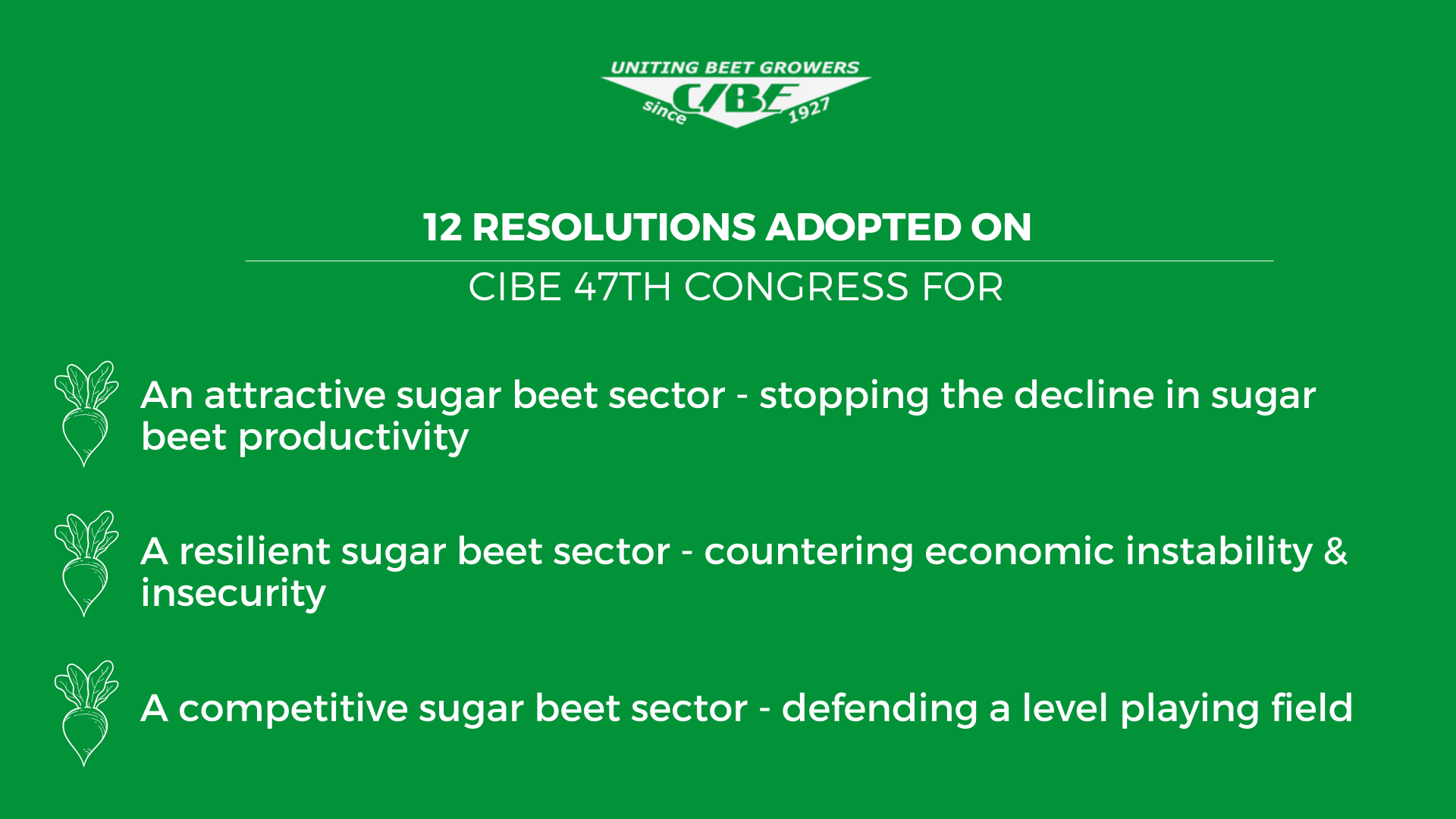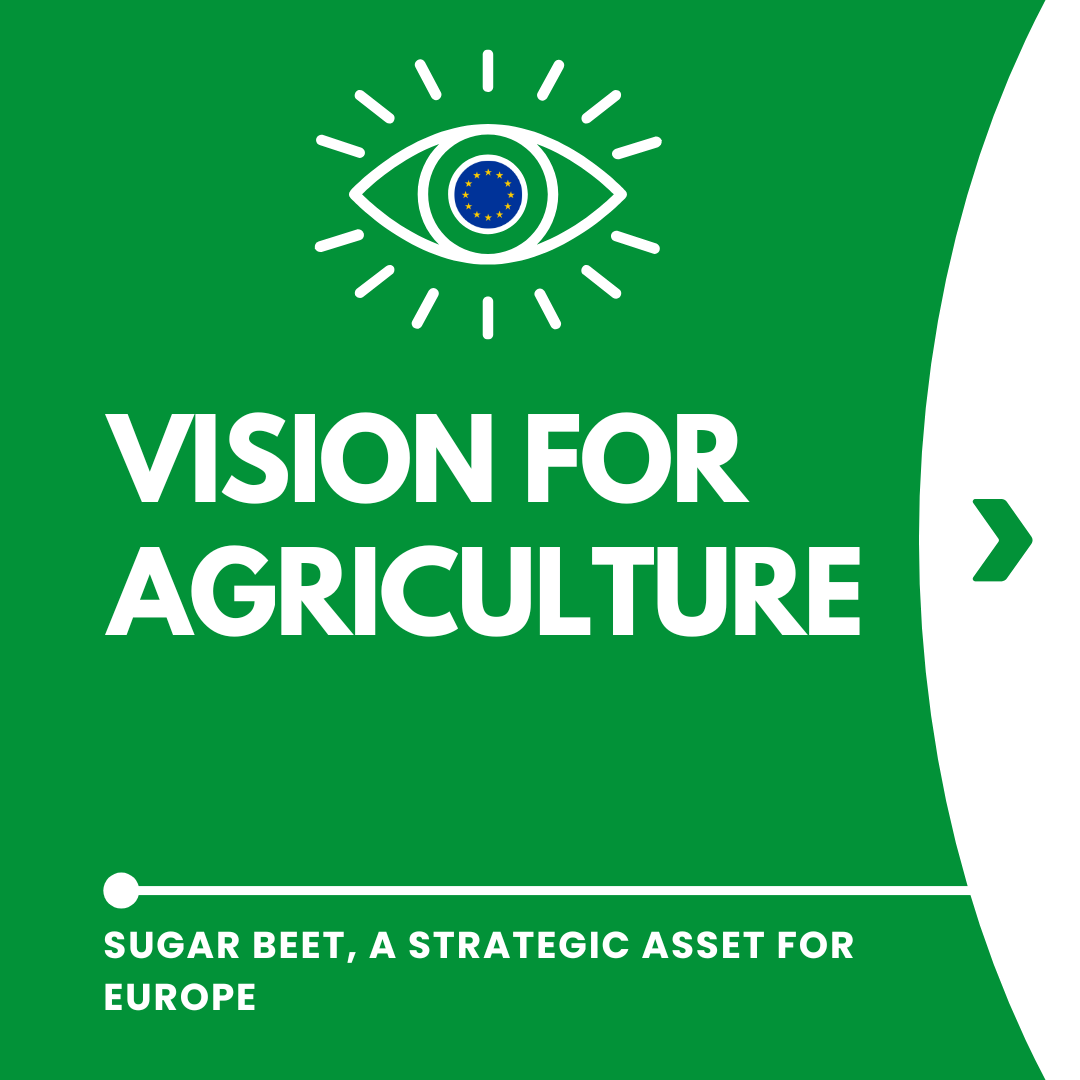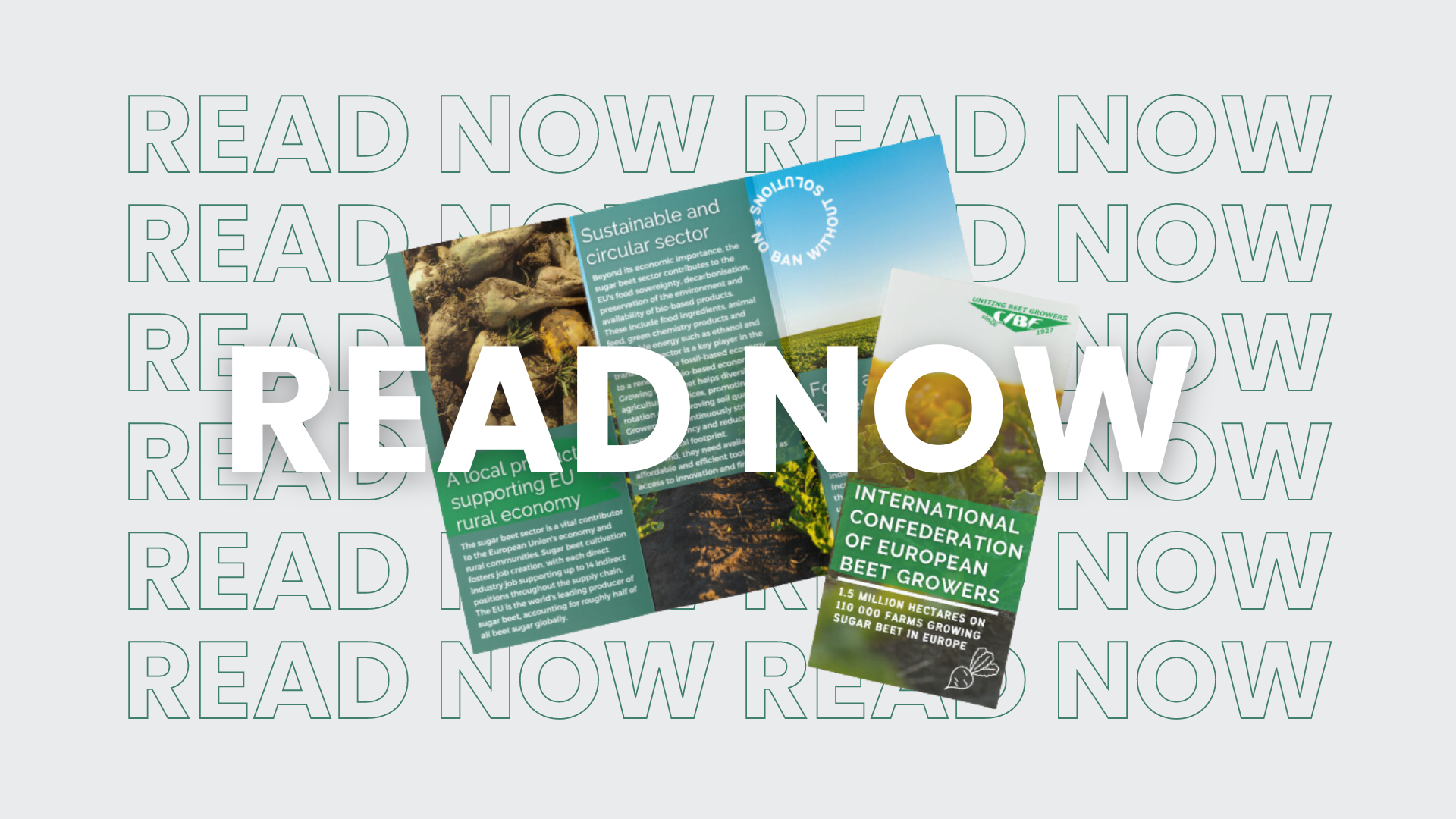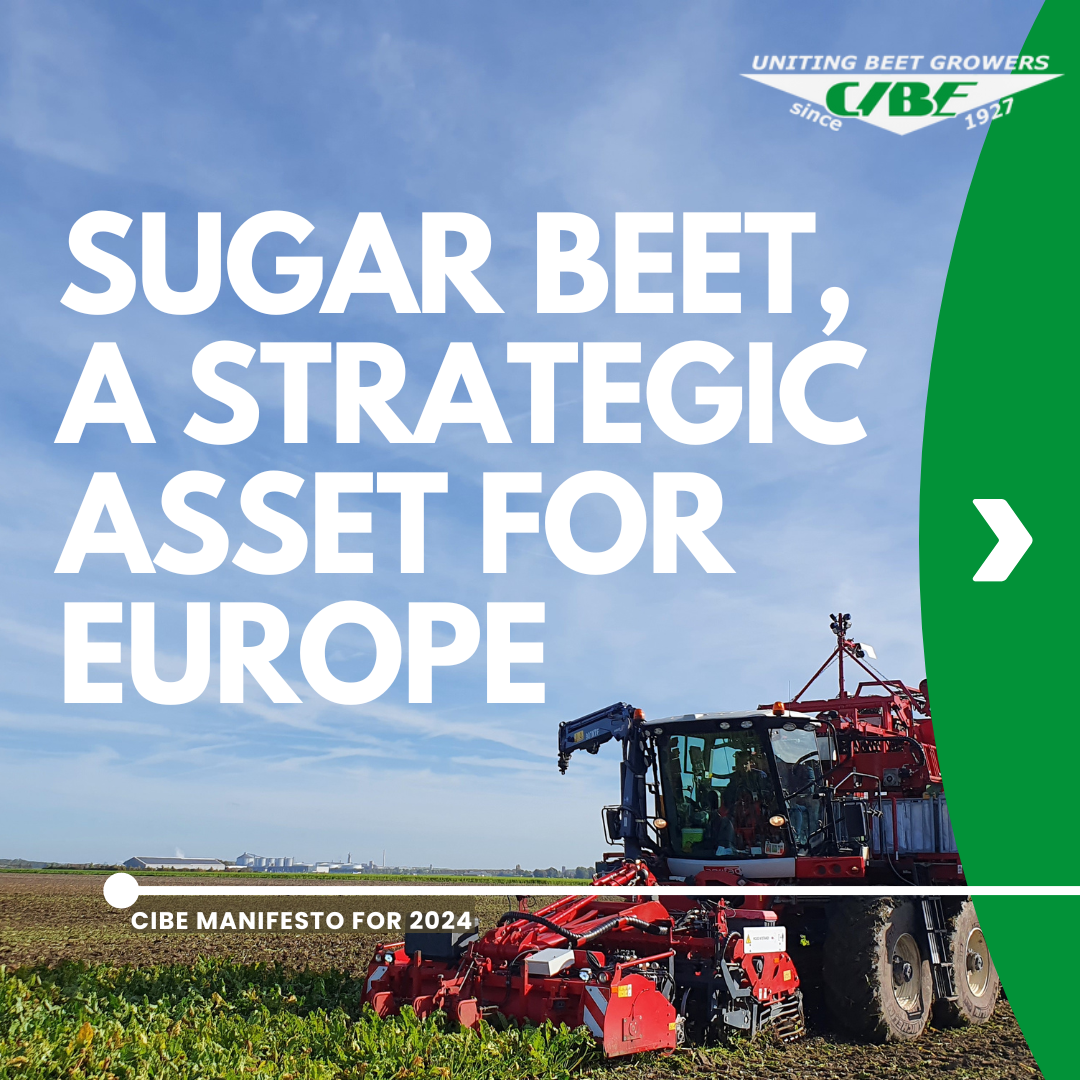

BEET SUGAR SECTOR WELCOMES IMPROVED POLICY COHERENCE FROM EUROPEAN COMMISSION
CIBE, CEFS and ACP/LDC Sugar Industries Group welcome yesterday's announcement by the Commissioner for Agriculture and Food Christophe Hansen
CIBE and CEFS deeply regret the adoption by the Council of the EU-Mercosur agreement.
DowDownloadnload
CIBE and CEFS alert the EU Institutions to the extremely worrying sugar market situation and call on the European Commission and the Member States to urgently take actions.
Farmers, agri-cooperatives, food processors, traders and fertilizer blenders warn that the small tweaks to the CBAM tax calculation formula introduced by the secondary legislation adopted today will not prevent the risk of fertilizer shortages or the prohibitive production costs threatening EU crop production.
.png)
Are you passionate about agriculture and skilled in public relations and communications? CIBE is looking for a dynamic Public Relations and Communication Advisor to join our team in Brussels!

The Mercosur agreement does: NOT ensure fair competition for EU farmers, NOT prioritise consumer protection, NOT include strong safeguards to protect the environment.
✅Ensure productivity gains & competitiveness💪
✅Protect growers from unfair competition⚖️
✅Ensure resilience to rising risks🦠📉
✅Support innovation🧬

2025 will be Congress year! European sugar beet world will meet in Rotterdam from 11 to 13 June.
Read our new brochure highlighting the importance of sugar beet local production in Europe !

Discover our Manifesto ahead of 2024 European elections!
Let's work together to restore European agriculture's ambition. The voice of sugar beet growers is outlining 4 priorities:

See how the beet sugar sector is working hard to develop sustainable alternatives to respond to the ban of some key plant protection products.
Such alternatives will most likely have to consist of a combination of techniques and approaches. To develop and successfully implement these will require time, several years and considerable financial investment.

Do you want to know more about sugar beet? Follow our e-campaign #FollowTheBeet on Twitter.

.png)
In October 2013, the European beet growers (CIBE), sugar producers (CEFS) and trade unions of the food and agriculture sector (EFFAT) have formalised a landmark agreement to jointly highlight and report on representative Good Practices of sustainable production of beet sugar in the EU.
CIBE takes part in the AgroCycle project, a Sino-EU collaborative research venture, funded by the European Commission under its Horizon 2020 programme to create a protocol for the implementation of the 'circular economy' across the agri-food sector.